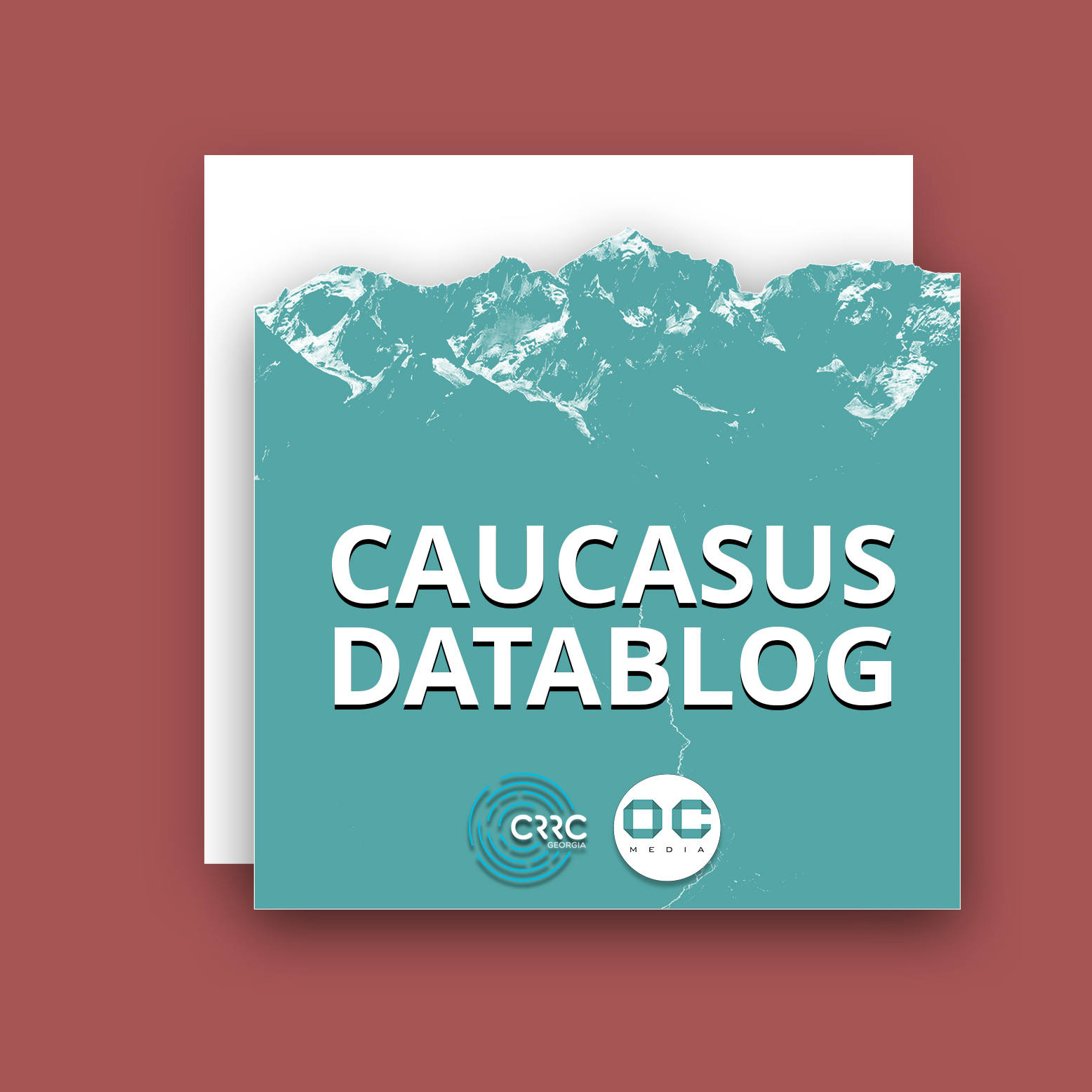
The Caucasus Datablog
The Datablog analyses issues and trends in the region using data and public polling. It is a collaboration between OC Media and CRRC Georgia.
Datablog | Shifting tides: changing dynamics of social capital in Georgia and Armenia
Levels of social ties and trust vary between and within Georgia and Armenia, and have changed significantly in the last decade.
Datablog | People in Georgia are highly uncertain about their economic future
Lower-income groups are particularly uncertain about what their economic futures might hold.
Datablog | Is the Georgian government doing enough to secure EU membership?
Georgians are split along partisan lines on whether their government is doing enough to secure the country’s candidate status.
Datablog | Is People’s Power designed to make Georgian Dream look good?
A CRRC Georgia study found that positioning Georgian Dream as more moderate than its spin-off group, People’s Power, increased support for the ruling party.
Datablog | Democratic hypocrisy in Tbilisi
A CRRC Georgia survey found that people living in Tbilisi were more willing to accept democracy-eroding policies if they believed that their preferred party was in power.
Datablog | Are Georgian people afraid of crime?
CRRC data found that roughly half of Georgians are afraid of being victims of crimes.
Datablog | How financially literate are people in Georgia?
CRRC Georgia data suggests that about half the Georgian public has a basic understanding of interest and inflation rates.
Datablog | How has Georgia changed in the last decade?
Georgians tend to believe that poverty, crime, and corruption have increased in the last decade, while affordable healthcare has become more accessible. But public data does not always match these assessments.
Datablog | Georgians sceptical about functioning of parliament
A majority of Georgians feel that the country's parliament does not function effectively and does not represent their interests.
Datablog | Nudging Georgians to self-test for HIV
Offering people a reward for testing for HIV and making tests more accessible can encourage young people to self-test.












